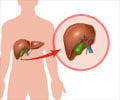Study says elderly patients with kidney failure get kidney transplants more often than they did a decade ago

Elke Schaeffner, MD (Charité University Medicine, in Berlin, Germany), along with Caren Rose and John Gill, MD (St. Paul's Hospital, University of British Columbia, in Vancouver, Canada) examined whether elderly patients with kidney failure have better or worse access to transplants now than they did in the past. The study included patients with kidney failure in the United States aged 60 to 75 years listed in the United States Renal Data System between 1995 and 2006.
The study revealed that elderly patients rarely receive a transplant, but they were twice as likely to get one in 2006 as in 1995. (In 2006, they had a 7.3% likelihood of getting a transplant within three years of their first treatment for kidney failure.) Elderly patients now benefit from greater access to organs from living donors and older deceased donors compared to a decade ago. They also die less frequently while waiting for a kidney than they did in the past.
The authors urge clinicians to encourage elderly patients with kidney disease to consider transplantation over other forms of treatment. "Early engagement and education of patients and their families about the benefits and opportunities for transplantation may lead to further increases in the use of… transplantation in this age group. Policy changes and research are also needed to further expand access to transplantation in the elderly," they wrote.
Source-Eurekalert















